The Basics of Solar Energy

Solar energy is a renewable source of energy that is derived from the sun's rays. It is becoming increasingly popular as countries around the world strive to reduce their reliance on fossil fuels and decrease their carbon footprint. In this article, we will explore the basics of solar energy, how it works, its benefits, and its applications.
How Solar Energy Works
Solar energy is harnessed through the use of solar panels, which are composed of photovoltaic cells. These cells convert sunlight into electricity through a process called the photovoltaic effect. When sunlight hits the solar panels, the photons in the sunlight knock electrons loose from their atoms, generating an electric current.
This electricity can then be used to power homes, businesses, and even entire cities. In addition to solar panels, there are other methods of harnessing solar energy, such as solar thermal systems that use the sun's heat to generate electricity or heat water.
Basics of Solar Energy PDF
If you are looking for more detailed information about the basics of solar energy, you can download a PDF that provides in-depth explanations about how solar energy works, its benefits, and its applications. This PDF will be a valuable resource for anyone looking to learn more about this renewable energy source.
Basics of Solar Energy PPT
For those who prefer visual presentations, a PowerPoint presentation on the basics of solar energy is available for download. This presentation covers the same content as the PDF but in a more visually engaging format. It is perfect for educational purposes or for presentations to a group.
The Benefits of Solar Energy
There are numerous benefits to utilizing solar energy as a renewable energy source. One of the most significant benefits is that solar energy is clean and does not produce harmful emissions that contribute to air pollution and global warming. By using solar energy, we can reduce our carbon footprint and help combat climate change.
Additionally, solar energy is abundant and inexhaustible. The sun provides an endless supply of energy, making solar power a sustainable and reliable source of electricity. Solar energy is also cost-effective in the long run, as it can reduce utility bills and provide energy independence.
Applications of Solar Energy
Solar energy has a wide range of applications, from residential to commercial to industrial settings. In residential settings, solar panels can be installed on rooftops to generate electricity for individual households. In commercial settings, solar energy can be used to power businesses, schools, and hospitals. In industrial settings, solar energy can be used to power manufacturing facilities and other large-scale operations.
Furthermore, solar energy can also be used in off-grid applications, such as powering remote cabins or villages that are not connected to the main electricity grid. In these cases, solar energy provides a reliable and sustainable source of power that is not dependent on traditional energy sources.
Basics of Solar Energy Generation
The generation of solar energy involves the conversion of sunlight into electricity through the use of solar panels. This process is clean, renewable, and sustainable, making it an attractive alternative to traditional fossil fuels. By understanding the basics of solar energy generation, we can harness this abundant source of energy and reduce our reliance on non-renewable resources.
In conclusion, solar energy is a promising renewable energy source that has the potential to revolutionize the way we power our world. By understanding the basics of solar energy, we can work towards a more sustainable future for generations to come.
Learn More :
 The Future of Energy Sustainability: Harnessing Solar Energy
22 February 2024 by Admin
The Future of Energy Sustainability: Harnessing Solar Energy
22 February 2024 by Admin
As the world continues to face challenges in meeting energy demands while also reducing carbon emissions, the focus has turned to renewable energy sources. Among these sources, solar energy stands out...
![Environmental Impact of Solar Energy [Positive/Negative]](/image/blogseasourcedatacom/the-environmental-impact-of-solar-energy.jpg) The Environmental Impact of Solar Energy
22 February 2024 by Admin
The Environmental Impact of Solar Energy
22 February 2024 by Admin
Solar energy is a renewable source of power that has gained popularity in recent years due to its numerous benefits, including reducing reliance on fossil fuels and decreasing greenhouse gas emissions...
 Harnessing the Power of the Sun: A Sustainable Energy Solution
22 February 2024 by Admin
Harnessing the Power of the Sun: A Sustainable Energy Solution
22 February 2024 by Admin
The sun has long been a powerful source of energy for our planet. From providing warmth and light to supporting the growth of plants through photosynthesis, the sun plays a crucial role in sustaining ...
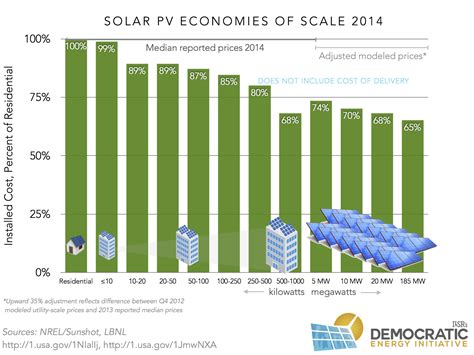 The Economics of Solar Power Costs and Benefits
22 February 2024 by Admin
The Economics of Solar Power Costs and Benefits
22 February 2024 by Admin
As the world continues to face pressing environmental challenges, the need for renewable energy sources has become more urgent than ever. Solar power, in particular, has emerged as a promising alterna...
 The Impact of Solar Energy on Job Creation
22 February 2024 by Admin
The Impact of Solar Energy on Job Creation
22 February 2024 by Admin
Solar energy has become a major player in the renewable energy sector, with more and more countries turning to solar power as a sustainable and clean energy source. In addition to its environmental be...
 The Importance of Government Incentives for Solar Energy Adoption
22 February 2024 by Admin
The Importance of Government Incentives for Solar Energy Adoption
22 February 2024 by Admin
Solar energy has been gaining popularity as a clean and renewable source of energy that can help reduce our reliance on fossil fuels. However, the high upfront costs of installing solar panels can be ...
 Challenges and Solutions in Solar Energy Implementation
22 February 2024 by Admin
Challenges and Solutions in Solar Energy Implementation
22 February 2024 by Admin
Solar energy is a renewable source of energy that has gained popularity in recent years due to its environmental benefits and decreasing costs. However, there are still challenges that need to be over...
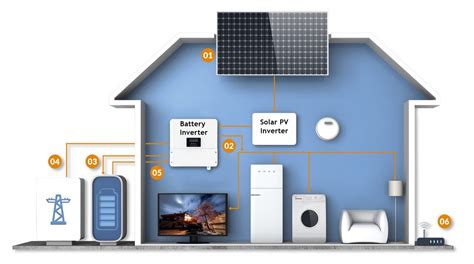 Solar Energy Storage Solutions
22 February 2024 by Admin
Solar Energy Storage Solutions
22 February 2024 by Admin
Solar energy has become an increasingly popular renewable energy source in recent years. As technology continues to advance, more and more homeowners and businesses are turning to solar panels to powe...
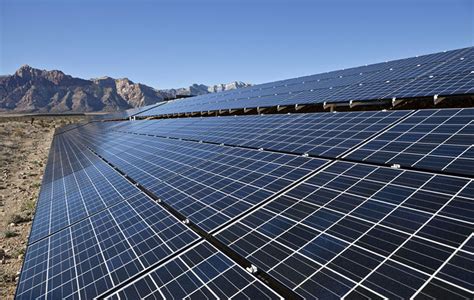 The Role of Solar Energy in Climate Change Mitigation
22 February 2024 by Admin
The Role of Solar Energy in Climate Change Mitigation
22 February 2024 by Admin
Climate change is one of the most pressing issues of our time, with the potential to greatly impact the future of our planet. As global temperatures rise and extreme weather events become more common,...
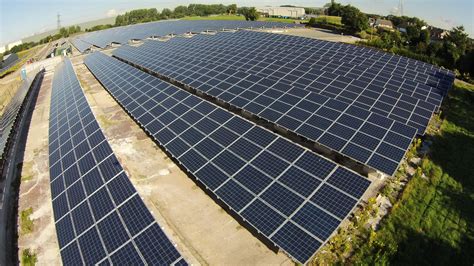 The Rise of Solar Farms: Large-Scale Solar Power Generation
22 February 2024 by Admin
The Rise of Solar Farms: Large-Scale Solar Power Generation
22 February 2024 by Admin
Solar power has gained significant traction in recent years as a clean, renewable energy source that has the potential to revolutionize the way we generate electricity. Solar farms, also known as sola...
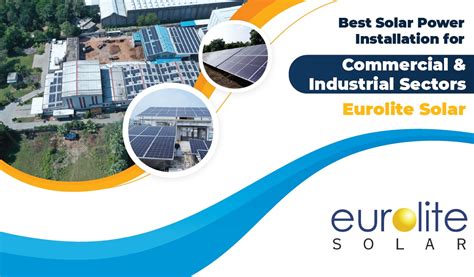 The Role of Solar Energy in Commercial and Industrial Sectors
22 February 2024 by Admin
The Role of Solar Energy in Commercial and Industrial Sectors
22 February 2024 by Admin
Solar energy has become an increasingly popular source of renewable energy in recent years, particularly in the commercial and industrial sectors. With advancements in technology and decreasing costs,...
 The Application of Solar Energy in Residential Settings
22 February 2024 by Admin
The Application of Solar Energy in Residential Settings
22 February 2024 by Admin
Solar energy is a renewable source of energy that has gained popularity in recent years due to its numerous benefits, including its low environmental impact and potential cost savings. In residential ...
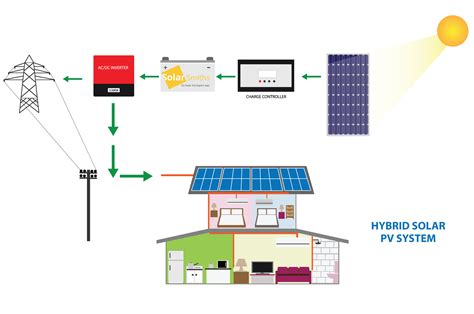 Types of Solar Power Systems
22 February 2024 by Admin
Types of Solar Power Systems
22 February 2024 by Admin
Solar power systems are becoming increasingly popular as a renewable energy source. There are several different types of solar power systems available, each with their own unique features and benefits...
 The Importance of Solar Energy Conversion Efficiency
22 February 2024 by Admin
The Importance of Solar Energy Conversion Efficiency
22 February 2024 by Admin
Solar energy is a renewable and abundant source of energy that has the potential to meet a significant portion of our energy needs. With advancements in technology, solar energy has become more afford...
 The Role of Solar Energy in Space Exploration
22 February 2024 by Admin
The Role of Solar Energy in Space Exploration
22 February 2024 by Admin
Solar energy has played a crucial role in the advancements of space exploration. Since the beginning of space travel, solar power has been utilized to fuel spacecrafts, power rovers on other planets, ...
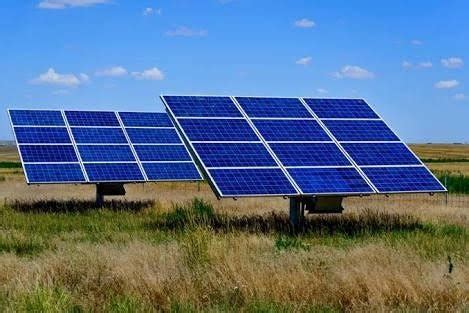 Solar Power in Developing Countries
22 February 2024 by Admin
Solar Power in Developing Countries
22 February 2024 by Admin
Solar power, also known as solar energy, has become an increasingly popular source of renewable energy in developing countries. With the advancement of technology and the decreasing costs of solar pan...
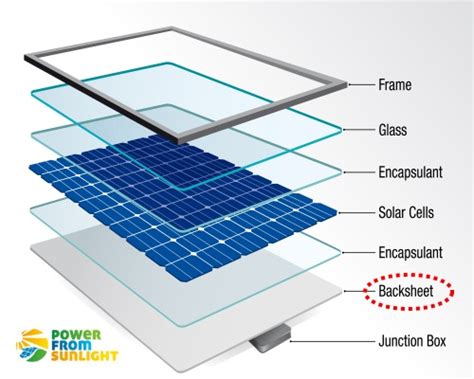 The Components and Construction of Solar Panels
22 February 2024 by Admin
The Components and Construction of Solar Panels
22 February 2024 by Admin
Solar panels are an essential part of renewable energy systems, converting sunlight into electricity. Understanding the components and construction of solar panels is crucial for anyone looking to inv...
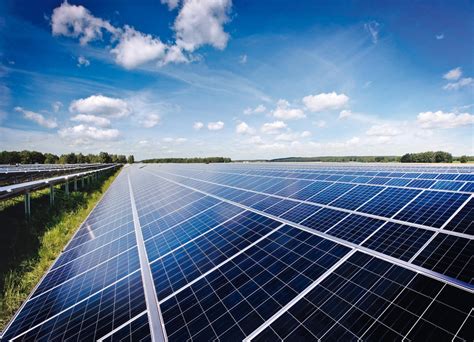 Photovoltaic Technology: How Solar Cells Work
22 February 2024 by Admin
Photovoltaic Technology: How Solar Cells Work
22 February 2024 by Admin
Photovoltaic technology, also known as solar cell technology, is a renewable energy source that converts sunlight into electricity. Solar cells are made of materials that exhibit the photovoltaic effe...
 Advancements in Solar Technology
22 February 2024 by Admin
Advancements in Solar Technology
22 February 2024 by Admin
Solar technology has come a long way in recent years, with new advancements being made constantly to improve efficiency, affordability, and accessibility. From advancements in solar panel technology t...